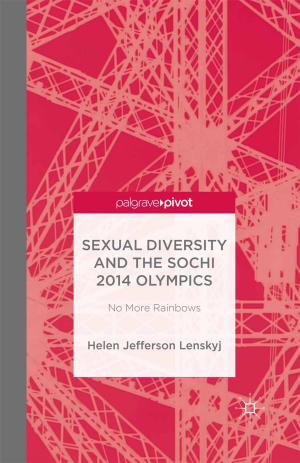Regional and National Elections in Eastern Europe
Territoriality of the Vote in Ten Countries
Nonfiction, Social & Cultural Studies, Political Science, Government, Democracy, International| Author: | Michael Keating | ISBN: | 9781137517876 |
| Publisher: | Palgrave Macmillan UK | Publication: | February 11, 2017 |
| Imprint: | Palgrave Macmillan | Language: | English |
| Author: | Michael Keating |
| ISBN: | 9781137517876 |
| Publisher: | Palgrave Macmillan UK |
| Publication: | February 11, 2017 |
| Imprint: | Palgrave Macmillan |
| Language: | English |
This book is the second of two studies which systematically explore territoriality of the vote in Europe. They investigate when and where voters treat regional elections differently from national contests and aim to increase our understanding of the dynamics of electoral competition, which have become increasingly multifarious and complex in many countries due to the establishment and strengthening of regional government. This volume brings together leading experts on elections who analyze differences between regional and national electoral outcomes in ten East European countries since 1990. Based on a common analytical framework, each chapter investigates congruence between regional and national elections and traces and explains second-order and regional election effects. The editors applied a similar analytical framework in Regional and National Elections in Western Europe (Palgrave, 2013) which focused on 13 West European countries, enabling the authors to compare regional electoral dynamics between Eastern and Western Europe and observe to what extent explanations for territorial heterogeneity in the vote in the West also apply to the East. This book will be of particular interest to advanced students and scholars in the fields of comparative politics, regional studies, Eastern-European politics, and democratization.
This book is the second of two studies which systematically explore territoriality of the vote in Europe. They investigate when and where voters treat regional elections differently from national contests and aim to increase our understanding of the dynamics of electoral competition, which have become increasingly multifarious and complex in many countries due to the establishment and strengthening of regional government. This volume brings together leading experts on elections who analyze differences between regional and national electoral outcomes in ten East European countries since 1990. Based on a common analytical framework, each chapter investigates congruence between regional and national elections and traces and explains second-order and regional election effects. The editors applied a similar analytical framework in Regional and National Elections in Western Europe (Palgrave, 2013) which focused on 13 West European countries, enabling the authors to compare regional electoral dynamics between Eastern and Western Europe and observe to what extent explanations for territorial heterogeneity in the vote in the West also apply to the East. This book will be of particular interest to advanced students and scholars in the fields of comparative politics, regional studies, Eastern-European politics, and democratization.















